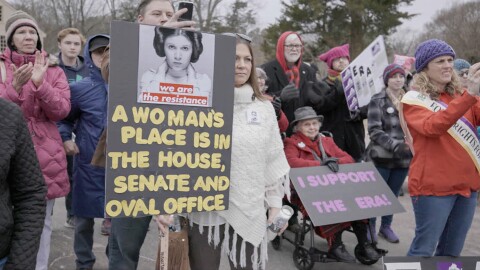
Adrian Florido
Border ReporterAdrian Florido is a reporter for the Fronteras Desk where he covers the U.S.-Mexico border, immigrant and tribal communities, demographics, and culture. Before joining KPBS, he was a staff writer at Voice of San Diego. There he reported on San Diego neighborhoods, focusing on immigrant and under-served communities as well as development, planning, land use, and transportation. For a year, he delivered a weekly television segment on NBC San Diego. He's a Southern California native who moved to San Diego in 2009 after earning an undergraduate degree at the University of Chicago. He majored in history with an emphasis on the US and Latin America. In college he was news editor of the student paper, the Chicago Maroon, and also spent time reporting from Capitol Hill and working with the advocacy group Reporters Without Borders. He also likes to eat. A lot. And he likes to run to keep up his appetite. And he likes good music.
-
In the 1970s, Ralph Rubio and friends from San Diego State University went camping in a small Baja California beach town. This is event would become the catalyst for popularizing the fish taco.
-
The TRUST Act would restrict cooperation between local law enforcement and federal immigration agents.
-
Hundreds of migrants deported from the U.S. were evicted from the Tijuana River canal where they lived, but some are returning.
-
Officials say the partnership between a major Mexican drug cartel and a Los Angeles street gang would have created a meth distribution system in Southern California.
-
Many of the people living in shacks or dug-out holes along the river were people deported from the U.S.
-
The fourth annual festival in Tijuana brings together Mexican and America poets.
- Vance, Hegseth Camp Pendleton event snarls traffic, riles local officials
- Protestors gather for 'No Kings' rallies in downtown San Diego
- I-5 to close in both directions along Camp Pendleton Saturday, CHP says
- Tens of thousands expected to hit the streets for second 'No Kings' rallies
- In photos: 'No Kings' protesters march in downtown San Diego









